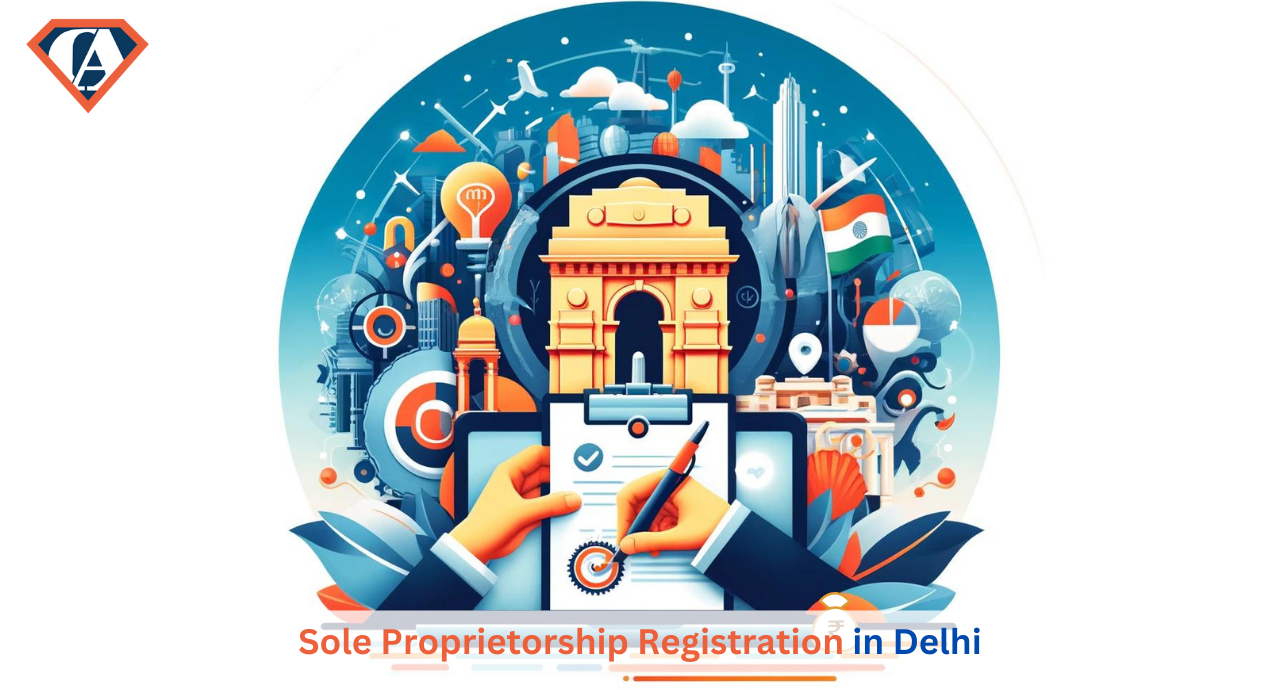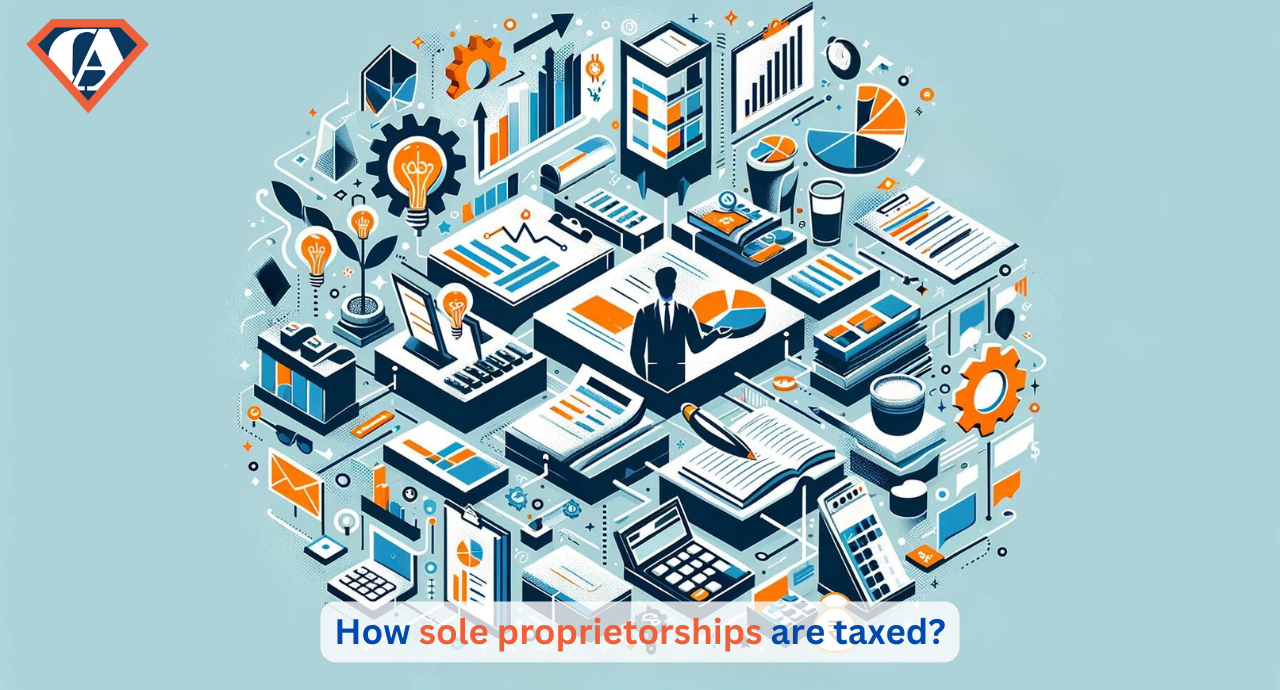Tips for Saving tax On Salary Income: Expert Advice from SuperCA
- Posted By SuperCA
- On 14 April

Are you sick and weary of having so much of your paycheck taken in tax? Do you wish there was a better method to minimize your tax bill? You're in luck, then! With the start of the new fiscal year, it's a good opportunity to prioritize organization and capitalize on the latest tax deductions and credits available for the upcoming 2023-2024 assessment year. Our compilation of the top 10 tax-saving suggestions for individuals earning a salary can assist you in optimizing your tax planning and retaining a larger portion of your earnings.
➤ By investing in options such as the Employee Provident Fund (EPF), the Public Provident Fund (PPF), National Savings Certificates (NSC), tax-saving fixed deposits, and Equity Linked Savings Schemes (ELSS), you can not only lower your tax burden but also reap the benefits of favorable returns. These investments are a smart choice for tax planning, as they can reduce your taxable income and give you a financial boost.
➤ To defer taxes and ensure a comfortable retirement, you may choose to join the National Pension Plan (NPS). Within the aggregate maximum of Rs. 1.5 lakh u/s 80CCE, both employee and employer contributions to the NPS are tax deductible up to 10% of basic pay and dearness allowance. Above and beyond the Rs. 1.5 lakh threshold, you may also deduct an extra Rs. 50,000 under Section 80CCD(1B).
➤ If you pay rent and have HRA deducted from your paycheck, you are eligible for a tax break. Depending on the amount of the HRA, the amount of the rent, and the location of the taxpayer's primary home, the HRA may be totally or partially tax-exempt. You can reduce the amount of tax you owe on your HRA by producing appropriate rent receipts and other documentation.
➤ Choose Meal or Food Vouchers Instead of Cash If your company offers meal or food vouchers as part of your compensation package, you may be able to deduct their value from your taxable income. Tax cannot be collected on vouchers for meals up to Rs. 50 per meal under the Income Tax Act. If you use these coupons sensibly, you can cut your food costs and your tax bill.
➤ If your company offers medical reimbursement as part of your income, you should submit a claim for it. If you submit the relevant papers and receipts, you can get up to Rs. 15,000 in tax-free medical reimbursement each year. You may be able to lower your taxable income and save money by doing this.
➤ You can avoid paying income tax on any money you use to travel within India if you receive Leave Travel Allowance (LTA) as part of your salary. Travel costs for you and your spouse/domestic partner/dependent children/parents/dependent siblings are eligible for reimbursement under the LTA. It's vital to remember that LTA can only be used to reimburse actual travel costs, not incidental ones like meals or lodging.
➤ Salary restructuring, or flexible salary components, is an option offered by many employers that can reduce your taxable income. You can negotiate with your employer to have more of your pay come in the form of non-taxable allowances like a transportation allowance, a phone allowance, or a uniform allowance, and less in the form of taxable components like a base salary or special allowances. As a result, you'll have less money subject to taxation.
➤ Contribute to Non-Governmental Organizations (NGOs) or other charity organizations to receive a tax deduction under Section 80G of the Income Tax Act. You can help a good cause and reduce your taxable income at the same time by giving to a qualified charity. The percentage of your donation and the type of organization both affect how much of your contribution you can deduct. In order to claim the deduction, you'll need to have a receipt and specifics about the donation.
➤ Taxpayers can now select between the old regime with its generous exemptions and deductions and the new regime with its lower tax rates but no such allowances, both of which were introduced in Budget 2020. The finest regime for you to follow can be determined after careful consideration of your finances and income. If you want to make a smart choice, you need to do your homework and figure out what your tax liability will be under both systems.
➤ If you're a homeowner, you can deduct the interest you pay on your mortgage or home equity loan used to buy your primary residence. You can itemize this deduction and potentially save some money on your taxes u/s 24(b) of the Income Tax Act. And for all the renters, the Home Rent Allowance (HRA) is your way to reduce your tax burden. By planning your housing expenses, such as rent or mortgage interest, you can minimize their impact on your taxes and keep more of your hard-earned money.Whether you own or rent, it's essential to understand the tax benefits available to you.
Bottomline
To sum up, minimizing your taxable income and saving as much as possible from your wage are mutually exclusive goals. In order to minimize your taxable income in the assessment year 2023-2024, it is crucial that you organize your finances and take advantage of the reliefs under law available to you.
Since the tax laws are always subject to change, it's best to consult a tax expert or financial counselor for guidance tailored to your unique circumstances. At SuperCA, our team of income tax experts performs a thorough check on all the information you provide to ensure its completeness and correctness. We don't just stop there - our systems are specially designed to act as your very own Tax Saviour! By suggesting deductions and tax exemptions applicable to your income tax returns, we make sure that you get the maximum possible tax refund and don't end up paying more than what you owe. With our help, you can sit back and relax, knowing that your taxes are in good hands.





